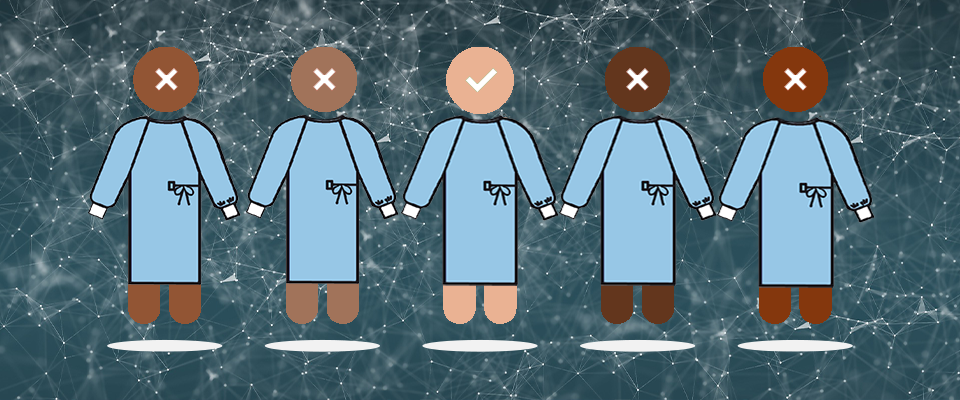Racism hurts the heart. Both black and white residents of counties where whites reported more racist attitudes were more likely to die from heart disease than those in areas with lower racial bias, according to a recent study from Berkeley psychology researchers. The relationship between whites’ racial bias and death rates was more pronounced for blacks, according to the study, which appeared in the journal Psychological Science last fall.
“The results are correlational, not causational, but they suggest that both harboring bias and being targeted by bias may be risk factors for circulatory disease. However, being targeted may be an even stronger risk factor,” said Jordan Leitner, the paper’s lead author, who was a postdoctoral research fellow in UC Berkeley’s psychology department for the past three years.
The study also found that blacks in more racially biased counties reported lower access to health care relative to whites. “This speaks to one potential pathway in the link between racial bias and death rate,” Leitner says.
Leitner and his colleagues acknowledge that the nonprofit’s data is imperfect because participants were self-selected. But they argue that its strength is in providing a massive pool of geocoded data on racial bias.
The research drew on data from the Centers for Disease Control and Project Implicit, a nonprofit that has measured racial bias among millions of respondents over more than a decade with an online survey and test. The nonprofit measured both explicit bias (how warmly participants reported feeling towards black people) and implicit bias (their degree of automatic negative associations with black people). Leitner and his colleagues acknowledge that the nonprofit’s data is imperfect because participants were self-selected. But they argue that its strength is in providing a massive pool of geocoded data on racial bias. They also weighted the data based on the number of participants in a county and their ages to avoid skewing the results.
Explicit and implicit bias among whites were both linked with higher death rates and reduced health care access, but explicit racism had a stronger effect, the study showed. “This suggests that living in a community where people are openly racist is more strongly correlated to these health outcomes than living in a place where people may have racist associations in their minds but don’t openly express them,” says Leitner, whose research was funded by the National Science Foundation.
In a second study, published in the journal Social Science and Medicine in October 2016, Leitner and his colleagues looked at the racial attitudes of blacks as well as whites. They concluded that counties where blacks harbored more implicit bias toward whites were also more likely to die of heart disease. “It adds to the evidence that harboring bias might be stressful, and we know chronic stress influences circulatory health,” Leitner says.
In a paper now under review, Leitner and his colleagues examined the relationship between racism and actual — rather than perceived — access to health care. They found that states in which whites expressed more racism toward blacks spent less per enrollee on Medicaid, a program that disproportionately benefits African Americans.
Previous research has shown that blacks who feel discriminated against have worse health outcomes. Leitner says he wanted to go beyond subjective perceptions of bias to measure the effects of actual racism on deaths from heart disease, which kills black Americans at higher rates than whites. The researchers adjusted for socioeconomic variables such as population size, black-to-white ratio, education, income and segregation levels, but Leitner says it’s always possible some other undetermined variable is driving correlations. The team also created an interactive map showing measures of bias and circulatory death rates by county.

Leitner, who is white and ethnically Jewish, became interested in race relations growing up outside of Queens on Long Island, New York. As the community transition from majority-white to ethnically diverse, he observed with discomfort that many white neighbors responded with fear and prejudice. When he enrolled at the University of Delaware as an undergraduate and later a graduate student, he chose to study psychology. “I wanted to use scientific methods to get a sense of the effects of these kinds of attitudes towards diversity and how to address them,” he says. For his Ph.D., which he completed in 2014, Leitner investigated the neural activity of white students as they provided feedback on a recorded speech by a black student.
When he became a postdoctoral research fellow at Berkeley, he took the opposite approach. Instead of probing the impacts of racial attitudes on an individual level, Leitner zoomed out to study millions of people across hundreds of communities. And he started focusing on how social psychology could shed light on racial disparities in health outcomes, the persistence of which have remained a mystery to researchers.
Eventually, Leitner hopes that highlighting the effect of racial bias on public health will encourage policymakers to design healthcare programs that reduce these gaps. “We’re still in the beginning stages, where we need to understand why the problem exists…so that we can design interventions that work,” he says. “The end goal is improve the lives of people in our society.”




















